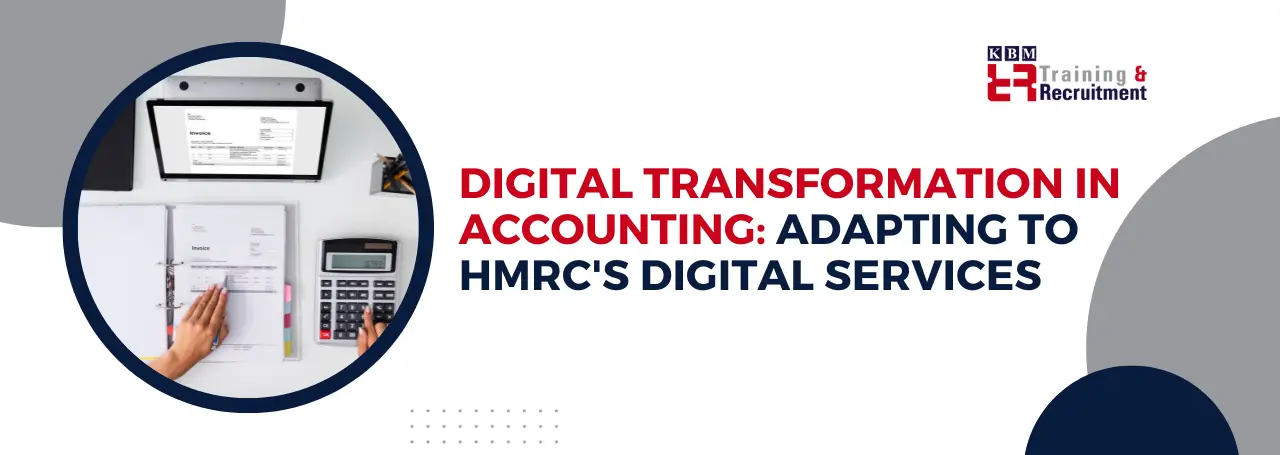In the ever-evolving accounting landscape, digital transformation has transcended buzzword status to become an imperative for the industry's survival and growth. With HM Revenue and Customs (HMRC) continuously evolving its digital services and requirements, it's clear that accountants and businesses must adapt to a new era of digital accounting.
In this blog, we will explore the importance of digital transformation in accounting and how it allows accountants and businesses to align with HMRC's digital services, ensuring compliance and efficiency in an increasingly digital landscape.
HMRC's Move towards Digital Services
HMRC's transition towards digital services is a strategic response to the changing technological landscape and the need for greater tax collection and reporting efficiency. From the introduction of Making Tax Digital (MTD) for VAT to digital tax accounts, HMRC is streamlining processes and mandating that businesses digitise their accounting records.
This shift underscores the necessity for accountants and businesses to embrace digital accounting tools and practices fully.
Streamlining Record-Keeping
Modern accounting practices now rely heavily on digital accounting software. These tools go beyond simplifying record-keeping; they enable real-time data entry and analysis. With the right digital accounting software, businesses can maintain precise financial records and seamlessly extract the information required for HMRC compliance.
Not only does this save time, but it also significantly reduces the risk of errors, ensuring financial integrity and facilitating smoother audits.
Enhancing Collaboration
Cloud-based accounting solutions have revolutionised the way accountants and their clients collaborate. With data securely stored in the cloud, accountants can access financial information in real-time, allowing for timely advice and guidance.
This collaborative approach is essential for adhering to HMRC's digital requirements, as accountants and businesses must work closely together to ensure accurate and timely reporting. Cloud-based solutions bridge the gap between the two parties, creating an ecosystem that streamlines the accounting process.
Boosting Efficiency
Automation is the linchpin of digital transformation in accounting. Automated processes, such as bank reconciliation and expense tracking, dramatically reduce manual data entry and the associated risk of errors.
These systems also generate reports and statements that align seamlessly with HMRC's digital filing requirements, simplifying the process of meeting tax obligations accurately and on time. No more last-minute scrambles; automation ensures a smooth, stress-free compliance experience.
Safeguarding Sensitive Information
In the digital age, data security and privacy have become paramount concerns. Accounting professionals need to ensure that the digital systems they use comply with data protection regulations and keep sensitive financial information secure.
Discussing the importance of data security and privacy measures in the context of digital transformation is crucial.
Adapting to New Tools
Adapting to digital transformation in accounting may require accountants and their teams to acquire new skills and competencies. This section explores the significance of ongoing training and professional development to ensure that accounting professionals effectively use digital tools.
Preparing for What's Next
The landscape of accounting and taxation is constantly evolving. Accountants need to look beyond current compliance requirements and consider how they can future-proof their practices to remain agile and adaptive in the face of upcoming digital changes, new regulations, and emerging technologies.
Conclusion
As HMRC embraces digital services, the accounting landscape must follow suit. Digital transformation in accounting is not merely an option; it's an essential strategy for businesses and accountants alike. By adopting digital accounting tools, embracing cloud-based solutions, and automating processes, companies can streamline their accounting practices and ensure compliance with HMRC's evolving digital requirements.
In this digital age, the ability to adapt to change and harness the power of technology is the key to success in accounting. Embrace digital transformation in accounting today and position your business for a future marked by efficiency, accuracy, and seamless compliance with HMRC's digital services. The journey towards a digital end in accounting has already begun, and those who embark on it will lead the way into a new era of financial management excellence.






















